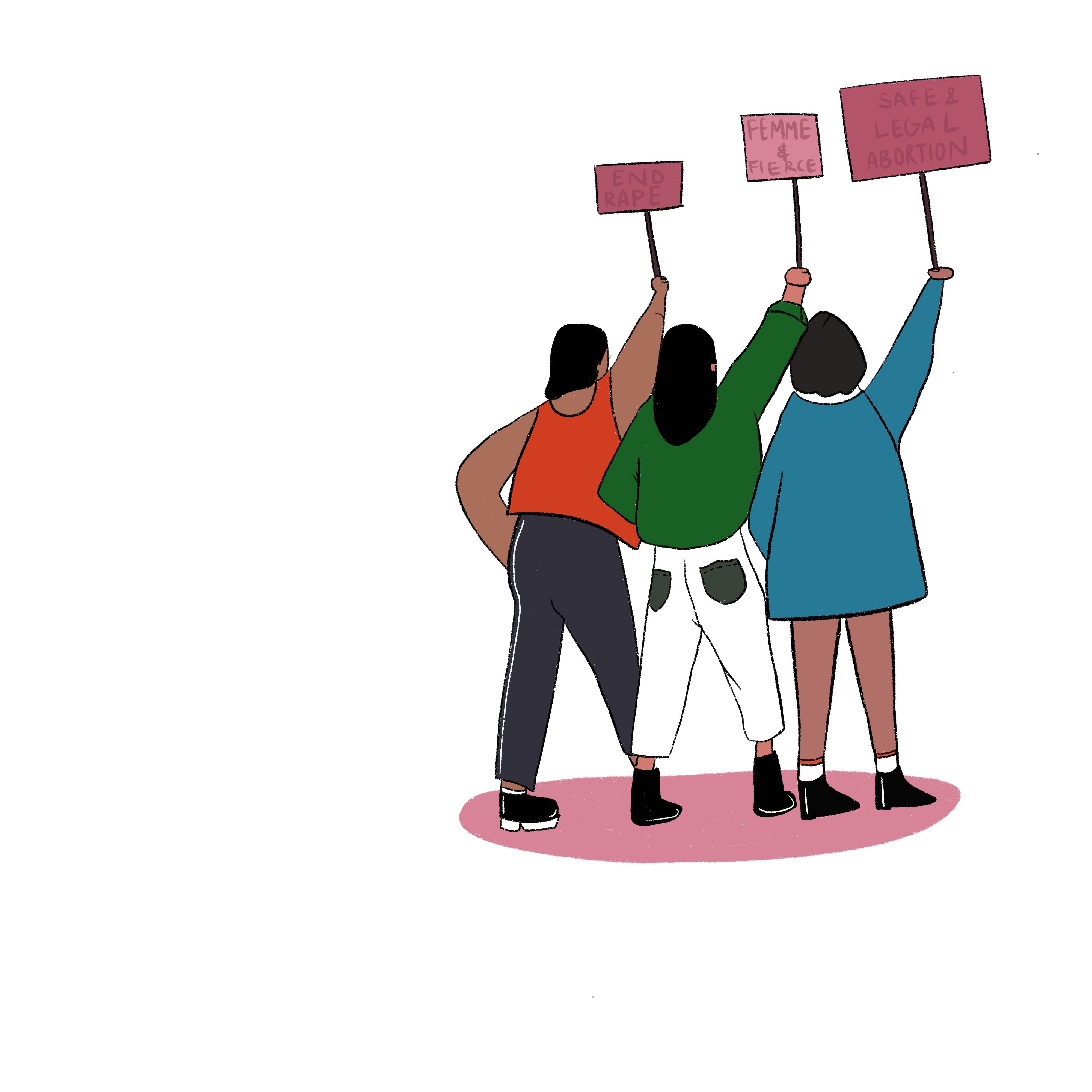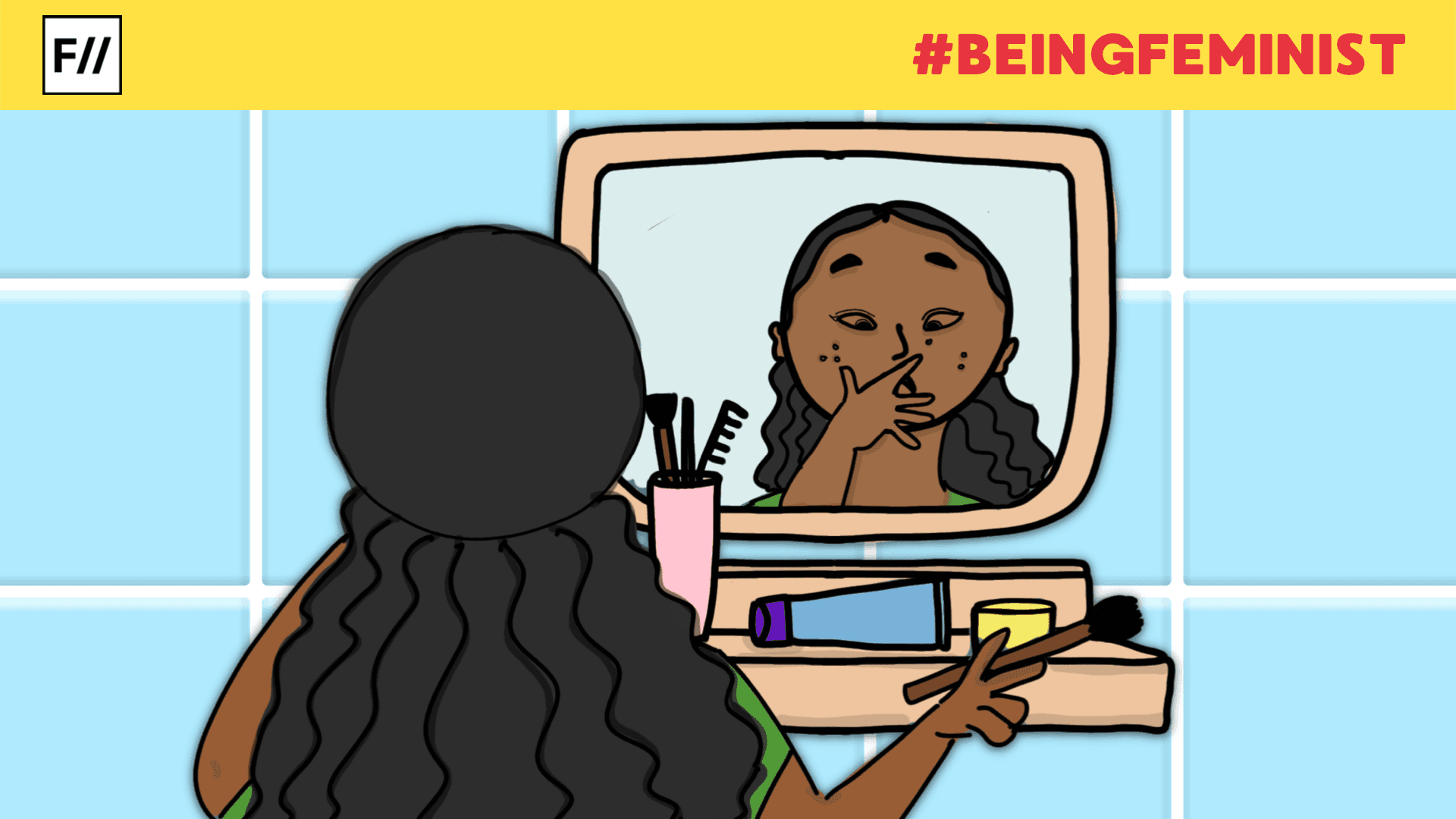From Virginia Woolf‘s ‘A Room Of One’s Own’ to Sheryl Sandberg’s ‘Sit At The Table’, the women’s empowerment movement has come a long way. But the onus to keep it progressing has fallen on you and me and every single woman out there.
I was working as an article assistant with a reputed audit firm and had good, top companies as our clients. It was one of the days when I was working out of the client’s office, and I was the only one from my team working there. So, I was working alone from the cabin, which was allocated to us as auditors. It was lunchtime. I was super hungry and thought I would have my lunch in 5 minutes or so after sending out one email that I was supposed to.
Right then, there was a knock on my cabin door, and one of the employees from the client, who was our point of contact, came and asked me to join him and his senior (who was a director of the company) and their other team members—all-male, for lunch. He said since you are alone today, they thought of asking me to have lunch with them.
In retrospect, all these small incidents have taught me a lot and helped me unlearn many things. And with every such incident, I have realised just one thing — despite every constraint, I have to make sure that I seize opportunities and that I also forgive myself for the ones that I have lost, and so should every woman!
I don’t know what happened to me at that moment, but the mere thought of sitting at a table for lunch with the director of the company and all the other client team members whom I didn’t know well, scared me.

In those few seconds, I was thinking about what I would be speaking about with the director, or what if he asked me something which I won’t know and I might look stupid to him, etc., and so I told him that I would take time today due to some important work to complete and that I am not hungry yet. The employee agreed and left for lunch. And I, like an idiot, had to sit and continue working for quite some time post their lunches so that I could show that I had something important to complete.
What was it that intimidated me? Why had I already tagged myself as sounding silly or stupid and thus letting go of a nice informal opportunity? I was 20- or 21-year-old then, and if a client was willing to ask me to join for lunch, why should I have judged myself and cancelled it on my own when there was no need to?
This incident is just one example of the times I have underplayed myself. It was a perfect opportunity for me to build a client relationship and network, which is important in any business.
What was it that intimidated me? Why had I already tagged myself as sounding silly or stupid and thus letting go of a nice informal opportunity? I was 20- or 21-year-old then, and if a client was willing to ask me to join for lunch, why should I have judged myself and cancelled it on my own when there was no need to?
I thought if there would have been at least one female for lunch, maybe I would have felt a little comfortable and said yes. But then, I also knew that as much as I would want such a scenario, this would not always be the case. And I must admit that I chickened out and underplayed myself without giving any further excuses to myself.

A few months after this incident, I remember reading ‘Lean In’ by Sheryl Sandberg, and when I came across the chapter ‘Sit at the table’, I recalled the entire lunch invitation incident. And I realised how it’s not only mine but the tendency of many other women to underplay themselves. These were the societally conditioned internal barriers that were in our minds, and I, we, all had to unlearn them.
I remember, in my classes at my liberal arts college, almost every girl used to start her question with, “I am not sure if this is the right question,” or “Sorry, this may be a silly question, etc.” and guys used to just ask their questions or give their opinions without any hesitation. This was rightly pointed out by one of our professors in the class that we as a woman need to stop doing it. It is disheartening that such was the case in a liberal arts programme where all the students were at the minimum graduates, and from top colleges, diverse courses and fields who had gone through a highly selective and competitive process. The situation is worse for trans women.
In retrospect, all these small incidents have taught me a lot and helped me unlearn many things. And with every such incident, I have realised just one thing — despite every constraint, I have to make sure that I seize opportunities and that I also forgive myself for the ones that I have lost, and so should every woman!
Also read: The Girlboss And The Perpetuation Of A Toxic Hustle Culture
Maya Angelou rightly said, “Each time a woman stands up for herself, without knowing it possibly, without claiming it, she stands up for all women.” So, I have made a motto for myself — ‘If given an opportunity, speak or maybe just sit at the table but always make sure you at least go to the table!’ And I hope I do live up to the expectations that I have set for myself, and that would be my service to my womanhood.
Also read: “Hustle Hard Girl!”— Does Productivity Only Entail The Big Capitalist Dream?
Amruta is a Chartered accountant and Young India Fellow and is working as a Consultant with Ernst & Young. She loves reading, listening to stories and writing (most of the time rambles her own musings). Religiously follows the motto “Experience over things” and is trying to enrich her life through the same. She can be found on Facebook, Instagram and Twitter.
Featured image source: Shreya Tingal for Feminism In India






Wow your story is so inspiring …the thought of letting go ourselves as ‘wrong’ or downplaying ourselves as you said is the first step.